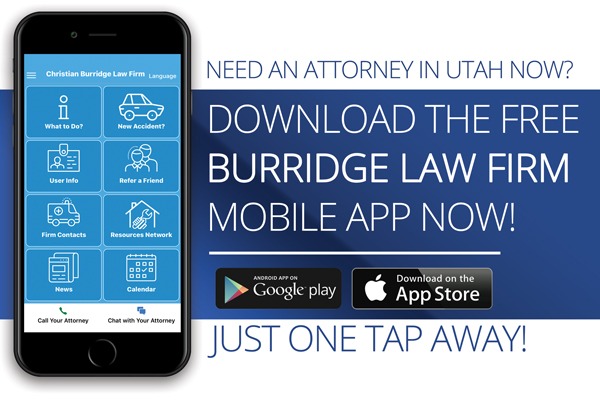When pursuing a wrongful death claim in Utah, dealing with insurance companies often becomes a significant aspect of the process. Whether negotiating with auto insurance carriers, medical malpractice insurers, or homeowner’s policy providers, understanding how to navigate these interactions can significantly impact your case outcome. This guide explores the challenges families face and strategies for effectively managing insurance company negotiations.
Understanding Insurance Company Motivations
Insurance companies operate as businesses with profit-driven objectives:
- They aim to minimize payouts while collecting premiums
- Their adjusters are trained to find reasons to reduce compensation
- They evaluate claims based on financial risk rather than moral obligation
- They employ teams of lawyers to protect their interests
- They have significant resources to investigate and dispute claims
Recognizing these motivations helps families approach negotiations realistically.
Common Insurance Company Tactics
Be prepared for strategies insurance companies frequently employ:
Quick Settlement Offers
Insurance carriers often make early, lowball settlement offers before:
- The full extent of damages is known
- Families have consulted attorneys
- The emotional impact of the loss has been processed
- All responsible parties have been identified
These offers typically represent a fraction of the claim’s actual value.
Requesting Unnecessary Information
Insurers may:
- Ask for excessive documentation
- Request irrelevant personal information about the deceased
- Seek medical records predating the incident
- Demand multiple recorded statements
These requests can delay proceedings and potentially uncover information they can use to devalue the claim.
Disputing Liability
Even in seemingly clear-cut cases, insurance companies often:
- Question the cause of death
- Suggest comparative negligence by the deceased
- Implicate third parties
- Challenge the interpretation of applicable laws
- Dispute medical conclusions
These liability challenges can complicate and extend the claim process.
Surveillance and Social Media Monitoring
Insurance investigators may:
- Monitor family members’ social media accounts
- Conduct surveillance of daily activities
- Look for inconsistencies in statements
- Search for evidence that could undermine emotional distress claims
Privacy awareness becomes crucial during the claim process.
How an Attorney Changes the Dynamic
Hiring an experienced Utah wrongful death attorney significantly alters your position:
- Attorneys understand insurance company tactics and counter them effectively
- They handle all communication, protecting you from saying something that could harm your case
- They have experience valuing similar claims and recognize lowball offers
- They can credibly threaten litigation if fair settlement offers aren’t made
- They bring negotiation expertise to secure optimal outcomes
Insurance companies typically approach represented claimants with more reasonable offers.
Effective Insurance Negotiation Strategies
Your attorney will employ several strategies to maximize your compensation:
Thorough Documentation
Comprehensive evidence strengthens negotiating positions:
- Complete medical records relating to the fatal incident
- Expert testimony regarding negligence and damages
- Economic impact analyses by financial experts
- Detailed documentation of non-economic losses
- Powerful personal impact statements from family members
This documentation makes it difficult for insurers to dispute claim validity.
Strategic Timing
Experienced attorneys know when to:
- Wait for maximum medical information before negotiating
- Push forward when delays serve insurance company interests
- File formal litigation when negotiations stall
- Consider the impact of approaching statutes of limitations
Timing can significantly impact settlement amounts.
Multiple Recovery Sources
Skilled attorneys identify all potential insurance coverage:
- Primary liability policies
- Umbrella policies
- Personal and business insurance
- Applicable government entity coverage
- Third-party liability insurance
Multiple recovery sources often increase total available compensation.
Litigation Preparation
Being genuinely prepared for trial strengthens negotiating position:
- Conducting thorough discovery
- Securing expert witnesses
- Preparing compelling demonstrative evidence
- Filing strong pre-trial motions
- Establishing a track record of trial readiness
Insurance companies often increase offers when they see serious trial preparation.
Navigating insurance negotiations during the wrongful death claim process requires experience, persistence, and strategic thinking. With proper legal representation, families can effectively counter insurance company tactics and work toward fair compensation that acknowledges the full scope of their loss.
People also ask:
What is the most you can sue for wrongful death? In Utah, there is no statutory cap that explicitly limits wrongful death compensation amounts. Economic damages, which include calculable financial losses like medical expenses, funeral costs, and lost lifetime income, have no predetermined limit. Non-economic damages for pain and suffering are determined case-by-case based on the specific circumstances. Some cases have resulted in multi-million dollar verdicts or settlements, particularly those involving significant earning potential or egregious negligence.
What is the wrongful death lawsuit in Utah? Under Utah Code § 78B-3-106, a wrongful death lawsuit is a civil action brought when a person’s death results from another party’s “wrongful act, neglect, or default.” The personal representative of the deceased’s estate files the lawsuit on behalf of the surviving spouse, children, parents, or other heirs. The action seeks compensation for both economic losses (financial support, household services) and non-economic losses (companionship, guidance) resulting from the death.
What is the difference between wrongful death and survival action? In Utah legal practice, wrongful death claims compensate the surviving family members for their losses resulting from the death, including lost income, inheritance, and companionship. Survival actions compensate for the pain, suffering, and financial losses the deceased person experienced between the time of injury and death. Wrongful death claims focus on the family’s future losses, while survival actions address what the deceased experienced before passing away.



